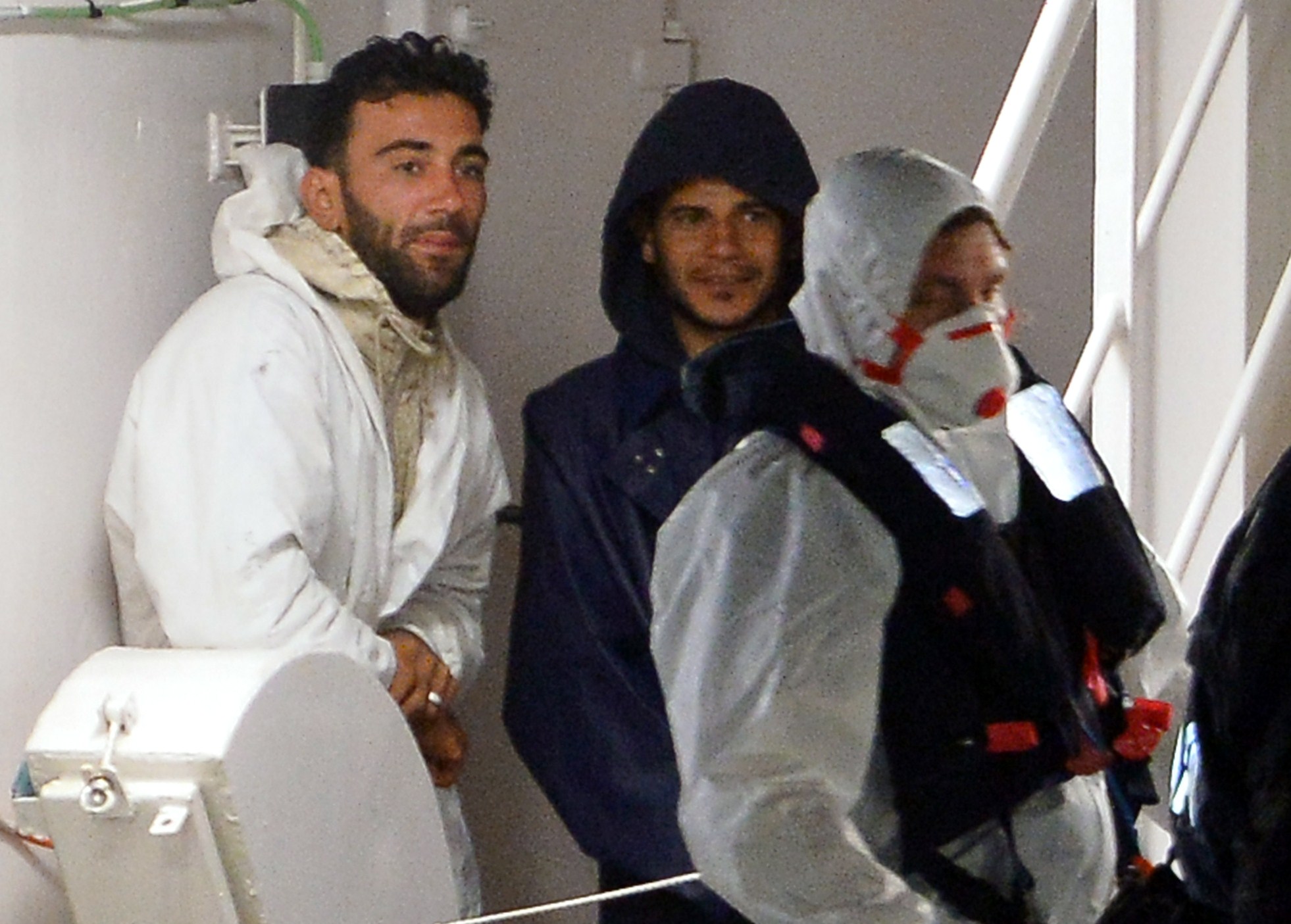
This picture taken on April 20, 2015 shows two men, identified as Mohammed Ali Malek (L), one of the survivors and understood to be the captain of the boat that overturned off the coasts of Libya, and a man identified as Mahmud Bikhit (C), another survivor and understood to be a crew member of the boat. (Getty)
The 27-year-old captain of a ship that capsized in the Mediterranean Sea has been arrested by Italian authorities on suspicion of multiple homicide following the deaths of more than 800 migrants in one of the worst sea tragedies in recent memory.
Mohammed Ali Malek was one of only 28 people to be rescued from the ship on Saturday by the Italian Coast Guard. He and another crew member, Mahmud Bikhit, of Syria, were arrested two days later.
Malek and Bikhit are both expected to be charged with engaging in illegal migration, according to the New York Times.
“Only 28 people are known to have survived the shipwreck, including a young man from Bangladesh who was transported by helicopter to a hospital in Catania, Sicily, on Sunday, and 27 people disembarked by the Italian Coastguard in Catania last night [Monday],” a UN spokesman, Arian Edwards, told journalists in Geneva.
Here’s what you need to know:
1. He Crashed the Migrant Boat Into a Ship Coming to Their Rescue

Mohammed Ali Malek (Handout/Italian Police)
Survivors told authorities that the captain, Mohammed Ali Malek, slammed the migrant boat into a Portuguese merchant ship that was coming to the boat’s aid, according to the New York Times.
Italian prosecutors in Catania, a Sicilian port city, said Malek’s actions were worsened when the migrants aboard the crowded boat moved to one side of the vessel after it collided with the King Jacob. The movement caused the boat to capsize.
Malek was steering recklessly and may have crashed the ship in order to avoid being identified as its captain, according to The Guardian.
Authorities said the crew of the Portuguese ship, the King Jacob, are not facing charges.
2. The Surviving Migrants Looked ‘Fragile’ & ‘Exhausted’ After Being Brought to Shore
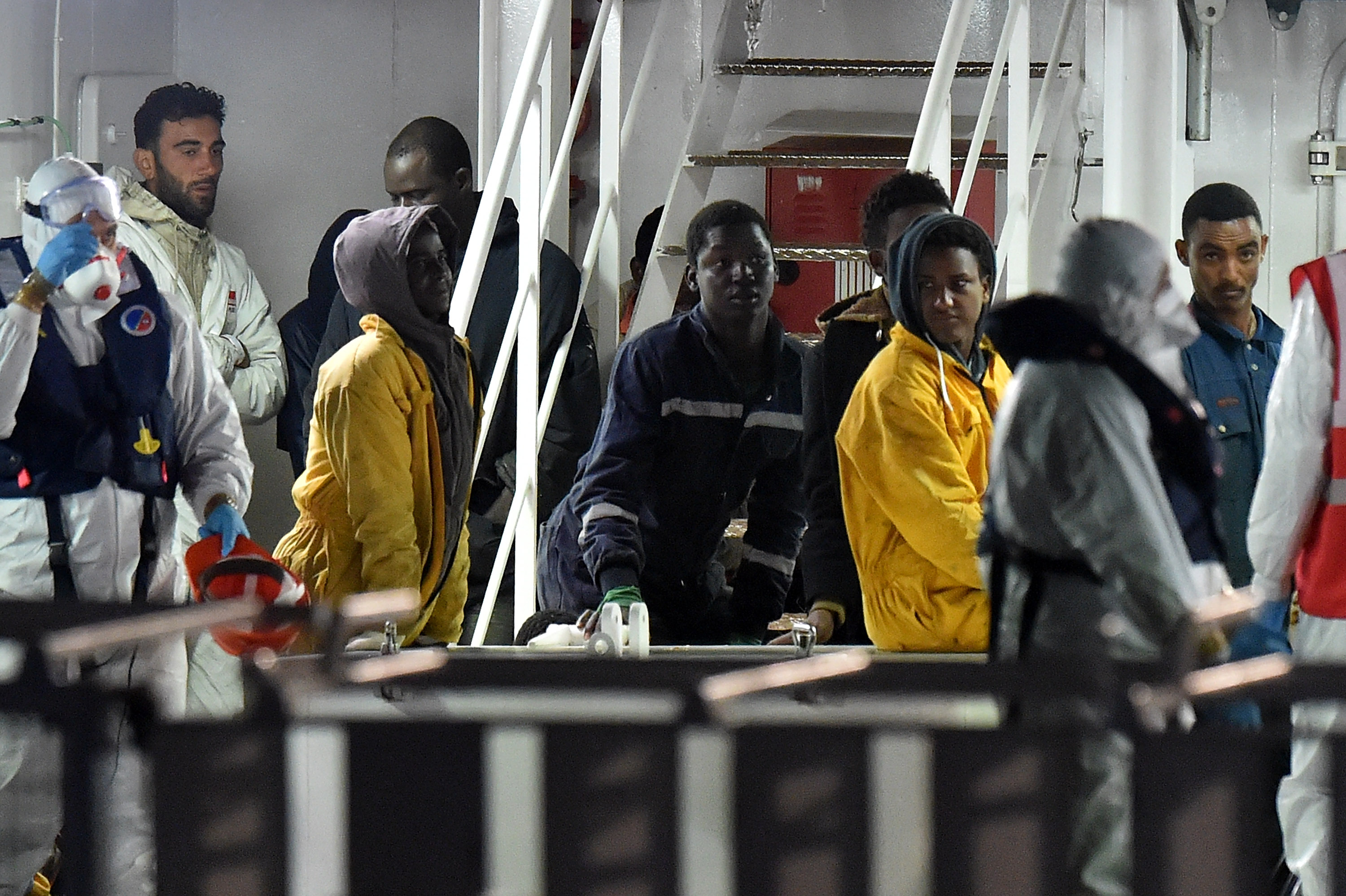
Tunisian skipper Mohammed Ali Malek stands on the deck of the Italian Coast Guard ship Gregretti which is carrying 27 survivors of the migrant shipwreck in the Mediterranean, at Catania port on April 20, 2015 in Catania, Italy. (Getty)
The United Nations’ Refugee Agency said on its website that its staff in Catania reported that the surviving migrants “looked tired and nervous.”
UNCHR spokesperson Carlotta Sami said, “the migrants looked exhausted, fragile, astonished to see so many people waiting for them. They will need psychological support. They are receiving food and water.”
“The fear in the eyes of one man, his head lowered and hands stuffed into his pockets, is plain to see,” said Kate Bond, a writer for UNHCR. “One survivor told UNHCR staff that there were children aboard the boat. So far, none of them have been found, although search-and-rescue operations at the site continue.”
3.Survivors Say Many of the Migrants Were Locked in a Hold in a Lower Deck by the Smugglers
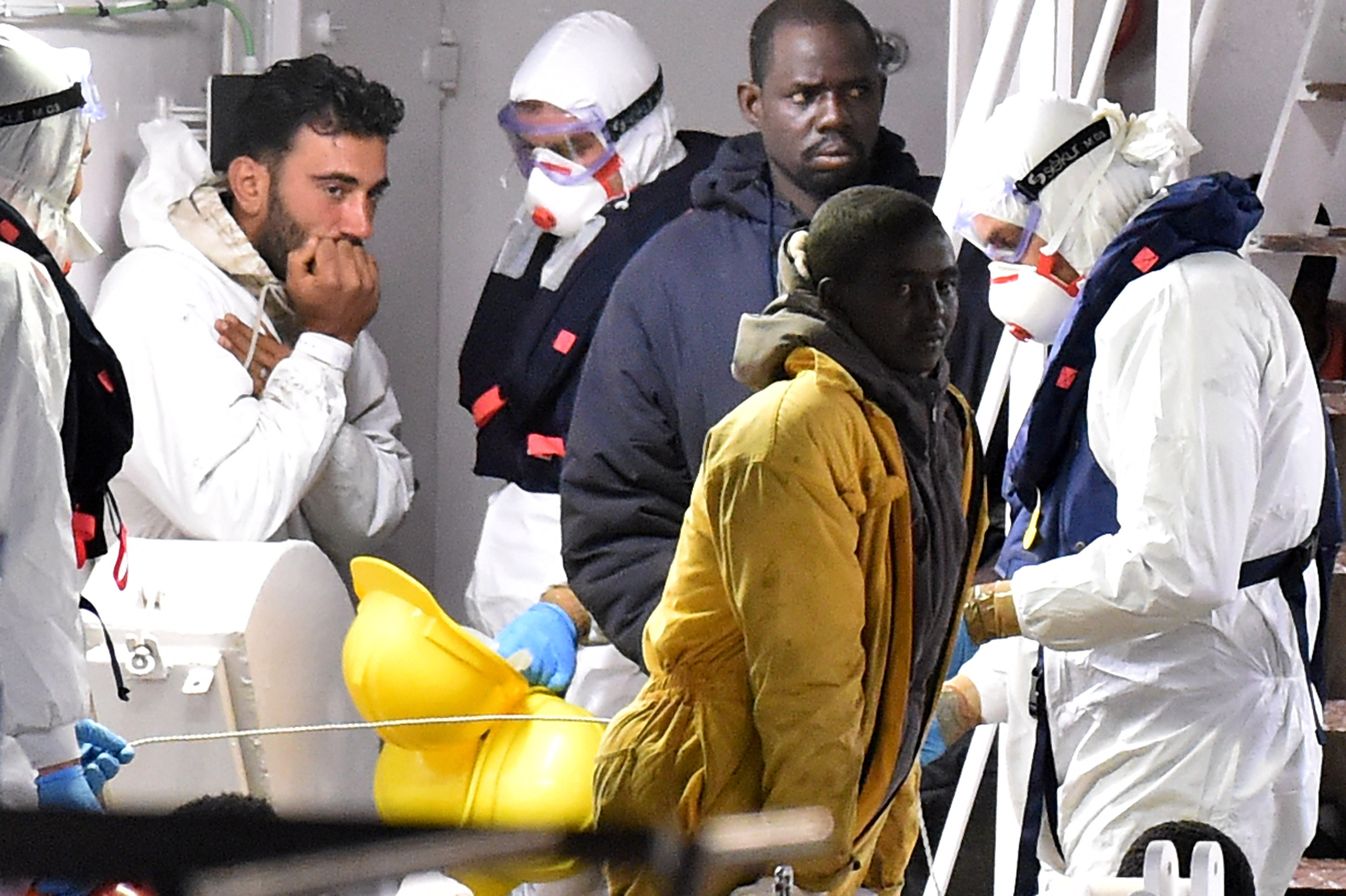
Tunisian skipper Mohammed Ali Malek stands on the deck of the Italian Coast Guard ship Gregretti which is carrying 27 survivors of the migrant shipwreck in the Mediterranean, at Catania port on April 20, 2015 in Catania, Italy. (Getty)
The migrants boarded the ship in Tripoli, Libya, according to the New York Times. One survivor said, “They were putting us inside like fish.” About 1,000 people tried to board. There were about 850 on the ship when it capsized, the UN reports.
A survivor from Bangladesh said many of the migrants were locked into a hold on a lower deck of the ship, the Times reported.
4. The Victims Mainly Came From Several North African Countries
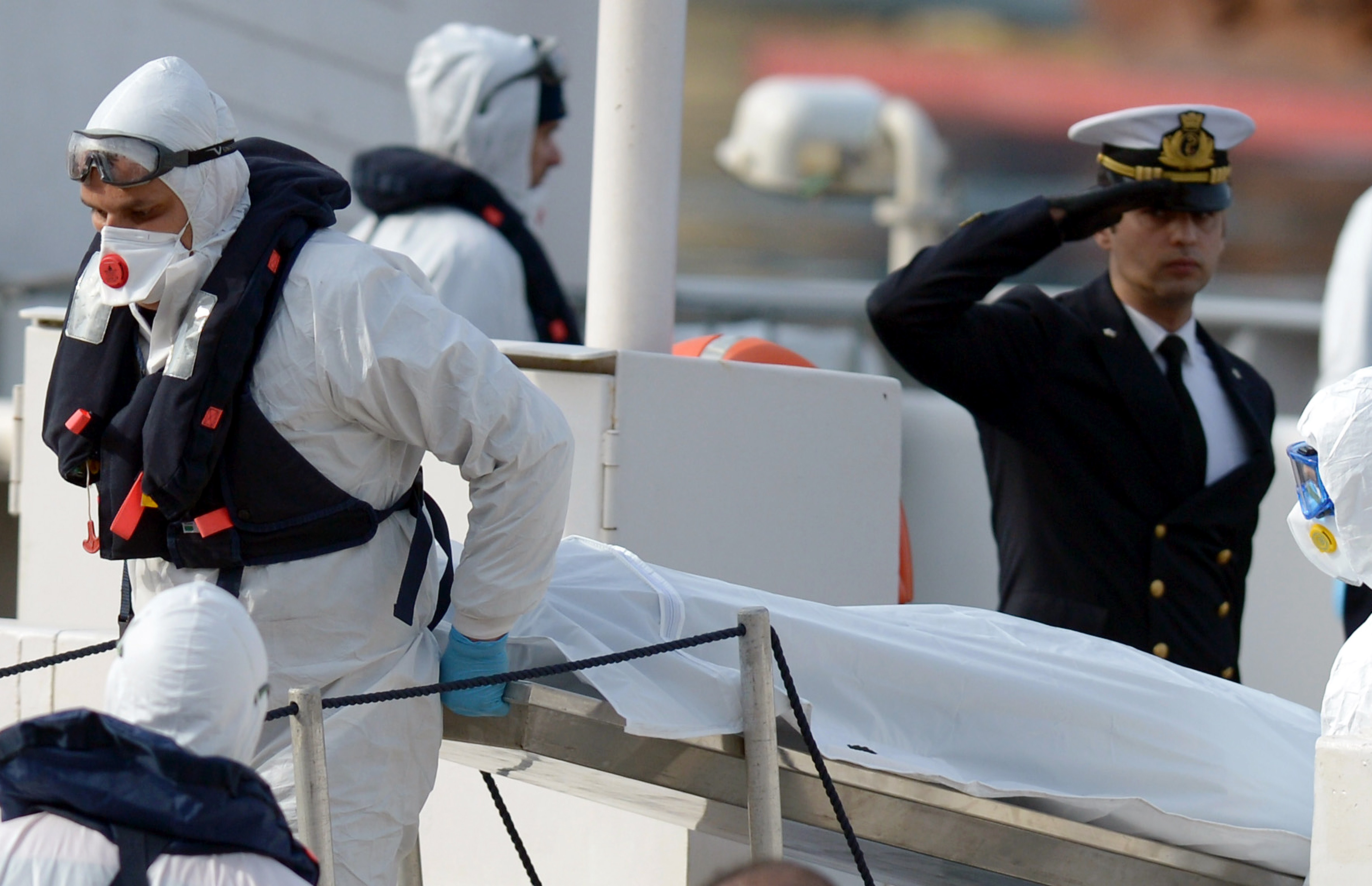
The body of a person who died after a fishing boat carrying migrants capsized off the Libyan coast, is brought ashore along with 23 others retrieved by the Italian Coast Guard vessel Bruno Gregoretti at Boiler Wharf, Senglea in Malta on April 20, 2015. (Getty)
The UN reports that the boat was carrying 350 Eritreans as well as people from Somalia, Sierra Leone, Mali, Senegal, Gambia, Ivory Coast, Ethiopia and Syria.
5. European Countries Are Struggling to Deal With the Wave of Immigrants Coming From North Africa
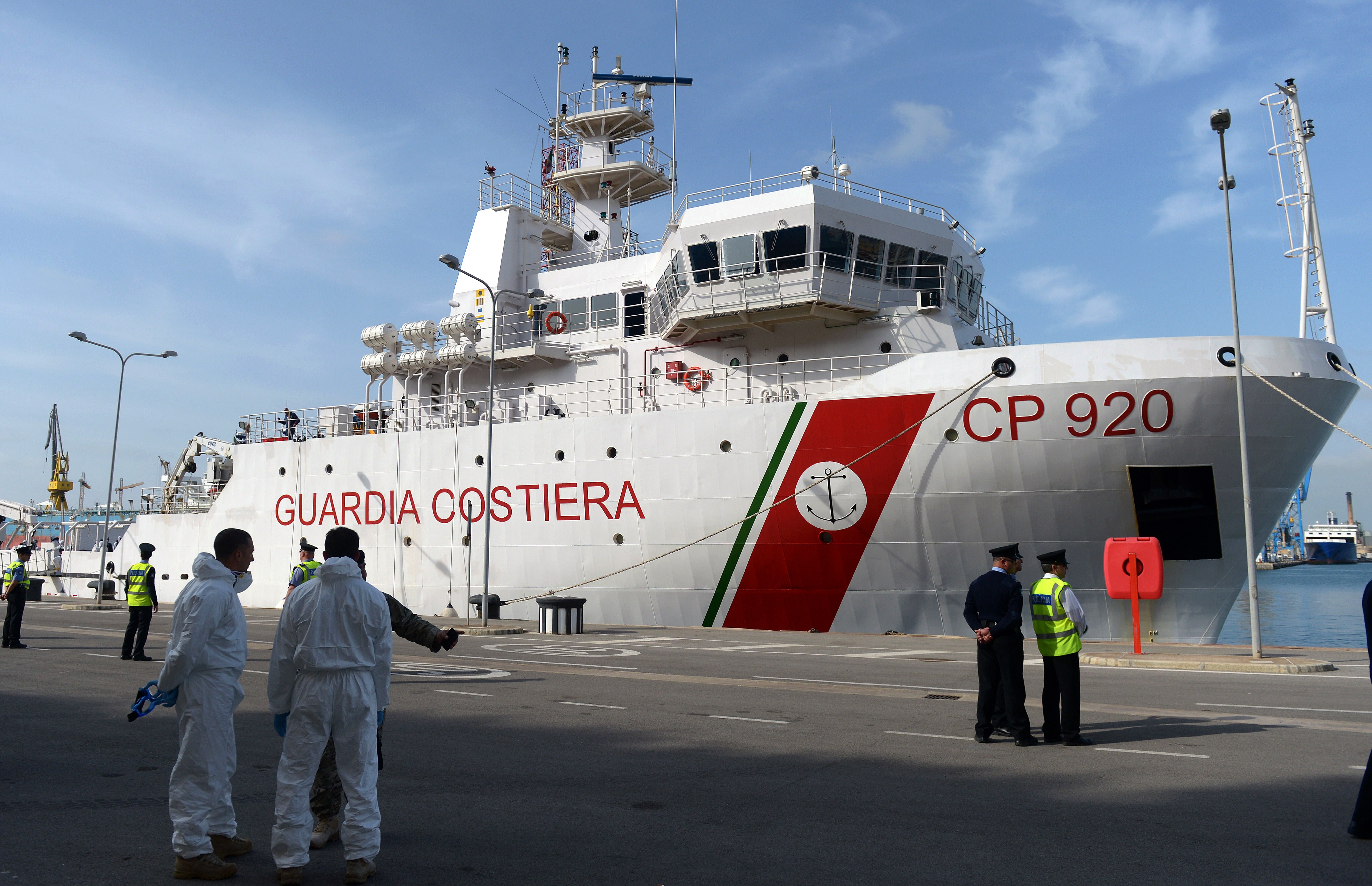
Italian Coast Guard vessel Bruno Gregoretti sits in the dock at Boiler Wharf, Senglea in Malta on April 20, 2015, after bringing survivors and the bodies of victims of a boat capsize. (Getty)
Migrants coming illegally on ships from North Africa to Europe through the Mediterranean Sea has caused an humanitarian crisis in the region. The European Union’s interior and foreign ministers held a meeting Monday and voted to begin military operations against smugglers in Libya, according to The Guardian.
About 1,300 people were killed in three major incidents in the Mediterranean Sea over about a two-week period. Several other rescues of migrants were also conducted in the area.
“[This is] a systematic effort to capture and destroy vessels used by the smugglers. The positive results obtained with the [Somali] operation should inspire us to similar operations against smugglers in the Mediterranean,” said the European commission, according to The Guardian.
“This disaster confirms how urgent it is to restore a robust rescue-at-sea operation and establish credible legal avenues to reach Europe. Otherwise people seeking safety will continue to perish at sea,” UN High Commissioner for Refugees António Guterres said in a statement. “But it also points to the need for a comprehensive European approach to address the root causes that drive so many people to this tragic end. I hope the EU [European Union] will rise to the occasion, fully assuming a decisive role to prevent future such tragedies.”
